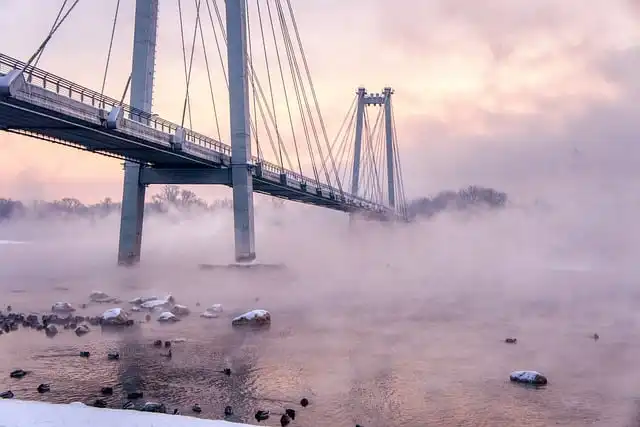Rivers’ Rights: Are Rivers Alive? Macfarlane’s Exploration

Macfarlane explores the Rights of Nature movement, focusing on rivers. He examines environmental damage, legal challenges, and the concept of rivers as living entities with rights.
Chennai’s Dying Rivers
After that to Chennai in south-east India, a city of three rivers and a bordering marshland. All 3 rivers have actually been proclaimed “dead” because of a complete lack of dissolved oxygen in their waters as they go through this city of three million people, occupying raw sewer and industrial waste in massive quantities.
Therefore the discussion goes, on right into the night, by shores, around little camp fires, commonly amongst people that really feel connected to their rivers, in charge of them, or just lucky to have an opportunity to kayak them before they vanish.
We go to, together with Macfarlane, each of these rivers, and encounter with him the personalities entangled with them. Usually these people are quixotically brave, harmed by their tilting against federal governments and corporations, deeply insightful, determinedly confident, and always (in his satisfied hands) verbalize.
Nature, or Pacha Mama, where life is recreated and occurs, has the right to important respect for its presence and the upkeep and regeneration of its life process, structure, features and transformative procedures.
In England, climate adjustment will place such springs at risk not as well far into the future. He reports in his brief inter-chapters on the River Camera that the across the country privatisation of riverways has placed the health and wellness of England’s rivers in danger of passing away as feasible natural environments.
Rights of Nature Movement
Each river goes to the center of the introduction of what Macfarlane calls a new-old idea. This concept has actually been newly originated in recent times by the environmentalist, chronicler and theologian-turned-geologian Thomas Berry, among the philosophical daddies of the Rights of Nature Activity.
What might be the affordable effects or compensations to be made when a river’s rights are endangered or refuted? Can a river take legal action against a firm? What do scientific researches have to say concerning the concept of a river being an entity?
The final trip enjoys Quebec’s wild Magpie River, called Muteshekau-Shipu by the Innu individuals who have actually lived for 8,000 years with this river. Its circulation, he composes, is now intimidated by a hydro plan that would change it right into a series of chained reservoirs– an attack right into one of the largest intact communities worldwide. Already, power lines from a just-completed hydro plan that has actually drowned a close-by river are going across the Muteshekau.
He has actually won lots of sort of rewards for his books, a lot of that he has been spoken of as a likely Nobel Prize victor several times over the past few years. Each of his publications transforms the globe a little, potentially sometimes exceptionally.
Is a River Alive?
His latest takes as its title and starting factor a question his young son when put to him, “Is a River Alive?” If we can talk of rivers passing away (and we do), then isn’t there an assumption someplace along that line of idea that a river does certainly make up a life?
MacFarlane lives south of Cambridge, England, not much from an unusual chalk stream spring that feeds the early reaches of the River Web cam, which streams through the community. This is one of the four struggling rivers he explores throughout the web pages of his book.
Robert Macfarlane is hard to pin down– track writer, nature author, youngsters’s author, ecological activist, documentary maker, mountain climber and agitated adventurer, spoken word entertainer, literary historian, linguist, scientist and librettist. His books are so various and yet so much themselves, it appears he has actually built his very own style.
Te Awa Tupua Act
In 2017, very, New Zealand passed regulations called the Te Awa Tupua Act, which identifies the Whanganui River in the North Island is alive, is an ancestor to the Whanganui iwi (tribe), and is itself a physical and spiritual entity, “an indivisible and living entire”.
What might be the affordable effects or payments to be made when a river’s rights are compromised or refuted? Can a river sue a corporation? What do scientific researches have to claim about the idea of a river being an entity?
This publication will certainly partially be an examination of whether this concept’s time has indeed come, and of exactly how immediate we feel it is to find lawful, workable response to the numerous insurance claims and consequences it gives rise to. That is the excellent gift Macfarlane’s “future-dreaming” has actually offered to the world.
Magpie River Threatened
The final trip is into Quebec’s wild Magpie River, named Muteshekau-Shipu by the Innu individuals who have lived for 8,000 years with this river. Currently, power lines from a just-completed hydro system that has drowned a close-by river are going across the Muteshekau.
Just how to bring such an imagined and imaginative, partly spiritual concept into the realm of law? It has begun to take place, maybe most noticeably in 2008 when Ecuador under the guidance of the socialist federal government of Rafael Correa entered presence a brand-new constitution that identified the Civil liberties of Nature alongside those of humankind and its companies.
Kevin John Brophy does not benefit, get in touch with, own shares in or get financing from any kind of company or company that would gain from this post, and has revealed no appropriate associations past their scholastic appointment.
Earth Law and River Rights
Berry has actually coined the expression “Planet Law” to recognise and maintain the idea of earth as “a communion of topics, not a collection of items”. Under this juridical viewpoint, “trees have tree civil liberties, insects have insect rights, rivers have river legal rights, and mountains have mountain legal rights”.
1 Ecology2 Environmentalism
3 Legal Rights
4 Macfarlane
5 Rights of Nature
6 Rivers
« Unbound Collapse: Founder Resigns Over Payment IssuesBookTok & Book Festivals: Collaboration, Diversity, and Future »
